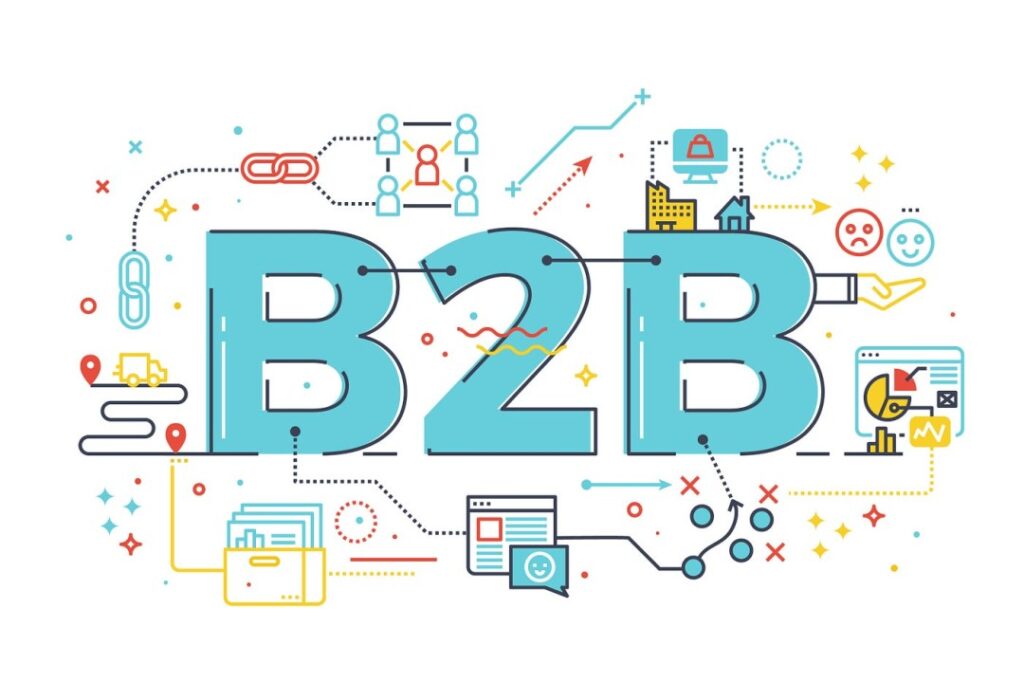The Evolving Landscape of B2B: Growth and Change
In the world of business, evolution is constant, and the B2B (business-to-business) landscape is no exception. With the advent of digital technology, shifting consumer behaviors, and global economic dynamics, the B2B sector is experiencing remarkable growth and change. In this blog post, we’ll explore the ways in which B2B is evolving and how businesses can adapt to thrive in this dynamic environment.

Digital Transformation and E-commerce
One of the most profound changes in the B2B space is the rapid acceleration of digital transformation and the widespread adoption of e-commerce. Companies are increasingly relying on online platforms to streamline their purchasing processes, reduce costs, and improve efficiency. This shift towards digital solutions has not only simplified procurement but has also opened up new opportunities for businesses to reach a wider audience.
Today’s B2B buyers expect a seamless, user-friendly online experience, akin to the B2C (business-to-consumer) world. As a result, companies are investing in user-friendly B2B e-commerce platforms, enhancing their digital presence, and optimizing their supply chains to meet these growing demands.
Personalization and Customer-Centric Approaches
The B2B landscape is also embracing a more customer-centric approach. In the past, B2B transactions were often seen as purely transactional, but now, building strong relationships with clients is a key focus. This involves understanding the unique needs and preferences of each customer and tailoring offerings accordingly.
Advanced data analytics and AI-driven tools are helping businesses gather insights, predict customer behavior, and offer personalized recommendations. As the line between B2B and B2C blurs, B2B companies are realizing that customer satisfaction and loyalty are paramount to sustained growth.
Sustainability and Social Responsibility
Another prominent change in the B2B sector is the increasing emphasis on sustainability and social responsibility. Customers, both businesses and consumers, are becoming more conscious of their environmental and ethical footprint. As a result, B2B buyers are seeking eco-friendly and ethically-sourced products and services. Companies that can demonstrate their commitment to sustainability and social responsibility are often preferred partners.
Businesses are not only incorporating sustainability into their operations but also into their marketing efforts. Being environmentally conscious is no longer a mere trend; it’s a vital aspect of long-term growth and competitiveness in the B2B world.
Globalization and Expanding Markets
Globalization has enabled B2B companies to explore new markets and expand their reach like never before. The internet and digital tools have made it possible for even small and medium-sized businesses to engage in international trade. As a result, B2B is becoming increasingly borderless, with companies establishing connections and partnerships across the globe.
However, with globalization comes the need to understand and navigate various cultural, legal, and logistical challenges. B2B companies must be prepared to adapt their strategies to the unique demands of different markets and regions.
Embracing Technology and Automation
Automation, artificial intelligence, and data analytics are transforming the way B2B companies operate. Automation tools are streamlining repetitive tasks, reducing errors, and increasing operational efficiency. AI-powered systems are improving decision-making processes, allowing businesses to make data-driven choices.
By embracing these technologies, B2B companies are not only able to operate more efficiently but also to provide better service and more accurate solutions to their clients.
The Future of B2B
In conclusion, the B2B landscape is evolving at a rapid pace, driven by digital transformation, personalization, sustainability, globalization, and technology. Businesses that adapt to these changes and embrace the evolving nature of B2B will find themselves well-positioned for growth and success in this dynamic environment.
To thrive in the evolving B2B landscape, companies should continuously innovate, invest in digital solutions, prioritize customer relationships, demonstrate social responsibility, expand their horizons globally, and leverage the power of technology. As the future unfolds, those who can successfully navigate these changes will reap the rewards of a thriving B2B sector.